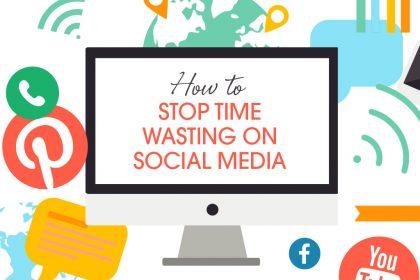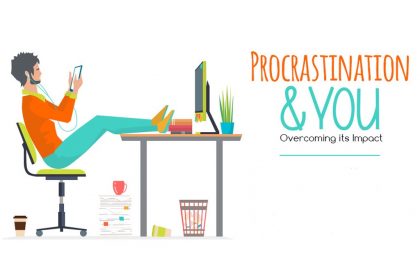Six tips to help you stick to deadlines and be more productive
Struggle to meet your deadlines? Wish you could get more done in less time? Here are six tips that help us stick to deadlines and be more productive.
As busy people with businesses to run, freelance projects to complete, bosses to keep happy and families to keep running smoothly, we can’t afford to slack off. Nor can we afford to miss deadlines.
Projects need to be in on time. Kids need to get to school on time. And we need to keep all the balls juggling in the air without dropping.
But, as much as we try to keep everything on track, there’s always the ball that does drop. The work that’s not quiet up to par. The PE kit that got forgotten. The business meeting you were 10 minutes late for.
Six tips to help you stick to deadlines and be more productive
We get it; we’ve been there too. But we’ve also learned ways to do things better. To work smarter, find ways to get motivated, even if we just don’t feel like working, and to make sure deadlines don’t slip.
To help you do more with less time (and feel more in control), here are six tips that help us stick to deadlines and be more productive. We hope they help you too.
1) Don’t keep everything in your head
It’s easy to assume you’re on top of things. Deadlines or requests come in and you make a mental note of them. But then you overlook an important request in a project, or you unintentionally take on too many commitments with a similar deadline.
The simple truth is that you’re not infallible; you’re human. And, if you try to keep all the deadlines and details in your head, some will fall through the cracks.
The only way to ensure that everything is noted and ordered, and can be comfortably be achieved on schedule to the correct standard os to be organised. And that means getting it out of your head and onto something.
What that something is, is entirely up to you. Some people swear by online calendars with alarms to notify them, and organisation apps. Personally, we love an old-fashioned diary and paper to-do list (there’s something about seeing your week laid out in front of you that enables us to picture where we have capacity and where we’re fully booked).
It doesn’t matter what system you prefer to use. Just find one and start using it. Trust us, the sense of calm and order that comes from knowing what you need to be working on now, and what you can leave for a couple of days, is more than worth the effort.
2) Work out why you’re procrastinating (and stop!)
If you’re reading this article right now because you have a looming deadline and are looking for any distraction to avoid working, you’re in good company. All of us procrastinate at some point or another. And while occasional, light procrastination isn’t going to do too much harm, consistent and prolonged procrastination (especially in the face of a big, important deadline) is a problem.
So what can you do? It’s easy enough to say “stop reading this and just get on with your work”! But we all know it’s not that simple.
The first steps in in recognising that you are procrastinating. Once you’re aware, you can implement your own strategy for stopping. Here are some that work for us:
- Allowing yourself a set time (for example, 10 minutes) to get your procrastination out of the way
- Using exercises like this one
- Focus Blocks never fail to get us working (more about them later)
- Removing popular procrastination temptations (like housework…)
3) Don’t be a perfectionist
Ever heard the expression ‘done is better than perfect’? When you strive too hard for perfection you can waste time endlessly making minor revisions that have little to no effect on the final outcome. Or, even worse, you can find yourself restarting the same project again and again until you feel you got it just right.
The only way to beat perfectionism and actually get stuff finished is to convince yourself that there is such a thing as ‘good enough’ – a time or state of achievement when you should stop working on your project.
Yes, some professions (and indeed some projects) require a certain degree of perfectionism. But not everything you do needs to be absolutely spot-on all the time. And, the chances are, if you’re a perfectionist, your idea of ‘good enough’ is someone else’s perfection anyway.
Seeking perfection constantly doesn’t make you better than everyone else. It just makes you less productive and less happy with your work. So learn to gauge what’s good enough, and stop there.
4) Do one task at a time
Formerly hailed as the answer to super productivity, multitasking is increasingly seen as counterproductive for many. Some even believe that it can be damaging to your brain.
But still people fall into the “if I’m busy juggling 10 things at once then I must be productive” trap.
The truth is that many of us actually get more done when we focus out attention on one job at a time. And we usually complete that job to a higher stand too! (Good news for those who just can’t let go of their perfectionist traits!)
If you really want to beat your multitasking tendencies, we recommend embracing Focus Blocks – targeted, 90 minute blocks of time in which you work on complementary tasks towards a common goal. It’s believed that you can achieve the equivalent of a day’s work in just one Focus Block, and we personally love them.
5) Apply the Pareto Principle
The Pareto Principle is a distribution principle that says that roughly 80% of the outcomes are based on 20% of actions. The remaining 20% of the outcomes are the result of the remaining 80% of the actions.
So what does that mean for you? It tells you that 1/5 of what you do is responsible for 4/5 of the results you’re seeing. And the real key to improving your productivity is in identifying what that 1/5 is.
Imagine if you could understand what, of all the tasks you do, have the biggest impact in your results, how much more productive you could be? This strategy can also help you to identify what tasks you may want to consider outsourcing or delegating.
6) Delegate or outsource
Speaking of delegating and outsourcing, one of the most powerful ways of being more productive is to get others to do work for you!
And no, this doesn’t mean simply handing out all your tasks and taking a break while others work. It involves knowing where you really add the most value, and where hiring someone else, or delegating a task to another person or team may be wiser.
Why is this so important? Because if you’re slower or not as competent at a task, it’s better to get someone else to tackle it. Equally of you hate it, or can add greater value elsewhere, it’s much better to let that task go and save your time and energy for the jobs only you can do as well, or that stretch and fulfil you.
Why aren’t you more productive?
If you’re not happy with your level of productivity, we hope these tips have helped you. At the very least, its important to identify exactly what is holding you back from achieving your full potential. Once you know you can seek out a strategy to overcome it.
You may find these articles helpful too:
- Need to be more productive? Learn how to write a Success List
- Working hard but getting little done? Why you need to stop being busy if you want to be productive
- Why taking a break from work can make you MORE productive
- 14 easy secrets to an amazingly productive morning routine
Donna Moores is a writer for Handmadewritings and WritingsGuru.
Photo by Sidney M.










